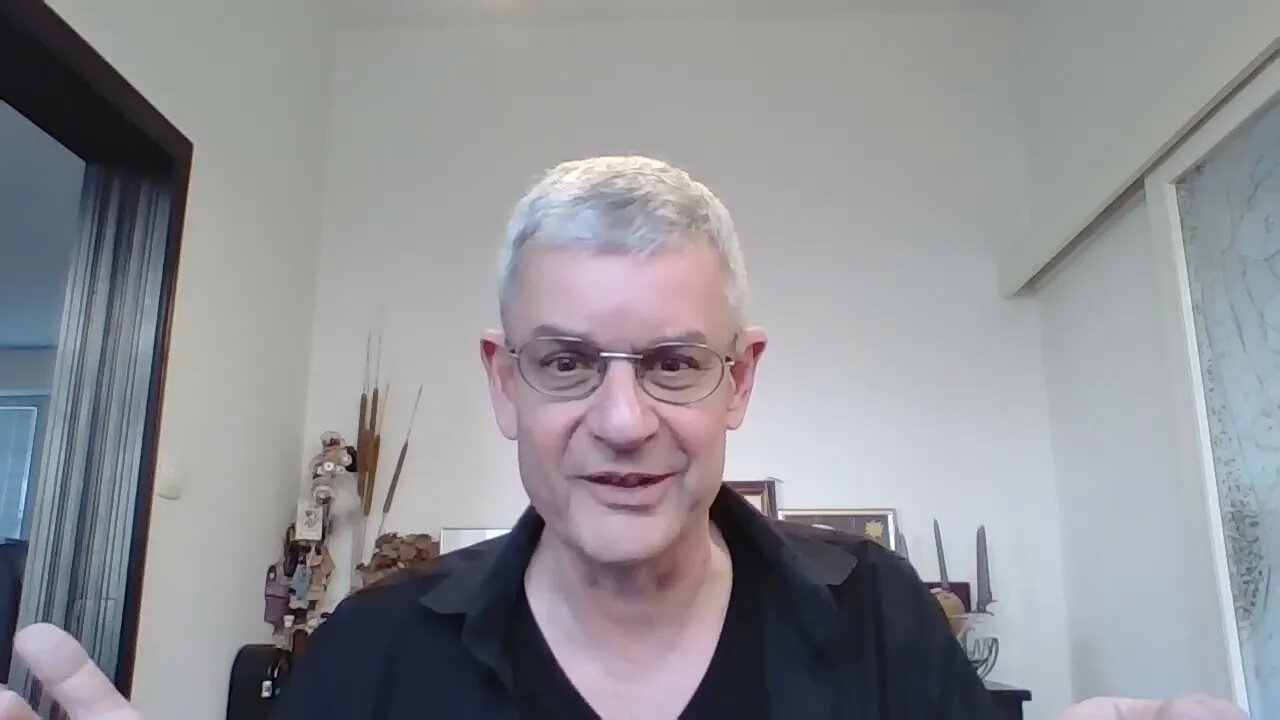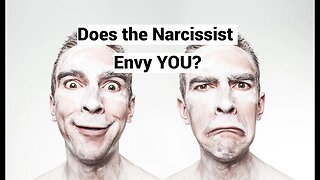Premium Only Content

Nature vs. Nurture? BOTH
False dichotomies: artificial vs. natural, nature vs. nurture (genes are merely internal environment).
The concept of "nature" is a romantic invention. It was spun by the likes of Jean-Jacques Rousseau in the 18th century as a confabulated utopian contrast to the dystopia of urbanization and Darwinian, ruthless materialism. The traces of this dewy-eyed conception of the "savage", his alleged harmony and resonance with nature, and his unmolested, unadulterated surroundings can be found in the more malignant forms of fundamentalist environmentalism and in pop-culture (the most recent example of which is the propaganda-laden cinematic extravaganza, “Avatar”).
At the other extreme are religious literalists who regard Man as the crown of creation with complete dominion over nature and the right to exploit its resources unreservedly. Similar, veiled, sentiments can be found among scientists. The Anthropic Principle, for instance, promoted by many outstanding physicists, claims that the nature of the Universe is preordained to accommodate sentient beings - namely, us humans.
Industrialists, politicians and economists have only recently begun paying lip service to sustainable development and to the environmental costs of their policies. Thus, in a way, they bridge the abyss - at least verbally - between these two diametrically opposed forms of fundamentalism. Similarly, the denizens of the West continue to indulge in rampant consumption, but now it is suffused with environmental guilt rather than driven by unadulterated hedonism.
Still, essential dissimilarities between the schools notwithstanding, the dualism of Man vs. Nature is universally acknowledged.
Modern physics - notably the Copenhagen interpretation of quantum mechanics - has abandoned the classic split between (typically human) observer and (usually inanimate) observed. Environmentalists, in contrast, have embraced this discarded worldview wholeheartedly. To them, Man is the active agent operating upon a distinct reactive or passive substrate - i.e., Nature. But, though intuitively compelling, it is a false dichotomy.
Man is, by definition, a part of Nature. His tools are natural and so are his constructions, the built environment. Man interacts with the other elements of Nature and modifies it - but so do all other species. Arguably, bacteria and insects exert on Nature far more influence with farther reaching consequences than Man has ever done.
Even an environmentalist like Bill McKibben of “End of Nature” fame, recognize this synergetic confluence. “To Think Like a Mountain” (Aldo Leopold) gradually came to be challenged by “To Think Like a Mall” (Steven Vogel). We should consider the entirety of our surroundings argues Vogel and seek to optimize our environment regardless of its origin: manmade or “natural”.
Find and Buy MOST of my BOOKS and eBOOKS in my Amazon Store: https://www.amazon.com/stores/page/60F8EC8A-5812-4007-9F2C-DFA02EA713B3
-
 11:25
11:25
Narcissism with Sam Vaknin
11 months ago $0.19 earnedDoes the Narcissist Envy YOU?
3627 -
 1:44:34
1:44:34
Tucker Carlson
6 hours agoTucker Carlson and Russ Vought Break Down DOGE and All of Trump’s Cabinet Picks So Far
152K204 -
 1:42:47
1:42:47
Flyover Conservatives
22 hours agoBO POLNY | The Best and Worst Times Are Coming – Are You Ready? | FOC Show
26.1K5 -
 51:12
51:12
BIG NEM
9 hours agoWelcome to Our Uncensored Show: Trump, Simulation Theory & the Albanian Mob - EP1
40.5K11 -
 2:05:14
2:05:14
Robert Gouveia
7 hours agoFBI Criminals Get LAWYERS; STOP Counting ILLEGAL Votes; Time to Disbar Tish James
58.5K94 -
 1:00:30
1:00:30
The StoneZONE with Roger Stone
6 hours agoAre We Heading For World War III? General Michael Flynn Joins The StoneZONE w/ Roger Stone
40.4K10 -
 1:14:12
1:14:12
We Like Shooting
15 hours ago $1.03 earnedDouble Tap 384 (Gun Podcast)
18.5K -
 LIVE
LIVE
Tundra Gaming Live
8 hours ago $2.11 earnedThe Worlds Okayest War Thunder Stream
352 watching -
 1:20:47
1:20:47
Donald Trump Jr.
9 hours agoThe MAGA Cultural Shift, Plus UFC at MSG & Interview with Newt Gingrich | TRIGGERED Ep.192
150K165 -
 45:18
45:18
Kimberly Guilfoyle
9 hours agoBreaking News on Latest Cabinet Picks, Media Spins in Circles,Live with Tim Hentschel & Alex Epstein | Ep. 175
126K32